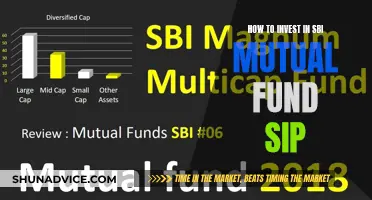
The Volcker Rule is a federal regulation that generally prohibits banks from conducting certain investment activities with their own accounts and limits their dealings with hedge funds and private equity funds, also called covered funds. The Volcker Rule defines a covered fund as anything considered an investment company in the Investment Company Act, including private equity and hedge funds, as well as commodity pools with certain exclusions, and funds sponsored by a US banking entity where the affiliate holds ownership interests. The Volcker Rule prevents banking entities and insured depository institutions from investing or owning any assets in covered funds or vehicles, suggesting that this sort of activity incorporates too much risk and does not benefit the customer base. The Volcker Rule prohibits banks from using their own accounts for short-term proprietary trading of securities, derivatives, and commodity futures, as well as options on any of these instruments.
| Characteristics | Values |
|---|---|
| Definition | An entity that (i) relies on section 3(c)(1) or 3(c)(7) of the Investment Company Act; (ii) is a commodity pool whose operator relies on CFTC Rule 4.7 (and certain similar pools); or (iii) a foreign fund that either relies on section 3(c)(1) or 3(c)(7) with respect to US investors or satisfies other criteria. |
| Prohibitions | Banks are prohibited from attaining or retaining an ownership interest in or sponsoring a covered fund. |
| Exemptions | Foreign public funds, wholly-owned subsidiaries, joint ventures, acquisition vehicles, securitisation-related vehicles, funds regulated under the 1940 Act, foreign pension or retirement funds, insurance company separate accounts, small business investment and entities used by the Federal Deposit Insurance Corporation to dispose of assets as receiver or conservator. |
What You'll Learn
- The Volcker Rule prohibits banks from owning interest in covered funds, which are generally defined as hedge funds and private equity funds
- Covered funds are defined as anything considered an investment company in the Investment Company Act, including private equity and hedge funds
- The Volcker Rule also prohibits banks from engaging in proprietary trading activities
- There are several exclusions to the rule, including foreign public funds, wholly-owned subsidiaries and joint ventures
- The rule was designed to prevent banks that receive federal and taxpayer backing from engaging in risky trading activities

The Volcker Rule prohibits banks from owning interest in covered funds, which are generally defined as hedge funds and private equity funds
The Volcker Rule is a federal regulation that prohibits banks from engaging in certain investment activities with their own accounts. It was created in response to the 2007-2008 financial crisis, which was caused in part by banks' speculative investments. The rule aims to protect bank customers by preventing banks from engaging in short-term proprietary trading of securities, derivatives, and commodity futures, as well as options on any of these instruments.
One aspect of the Volcker Rule is that it prohibits banks from owning an interest in covered funds, which are generally defined as hedge funds and private equity funds. This means that banks are not allowed to acquire or retain ownership interests in these types of funds. The rule is intended to discourage banks from taking on too much risk and using their own funds to make speculative investments that do not benefit their customers.
The Volcker Rule sets forth strict requirements for banks regarding their dealings with covered funds. Banks are prohibited from sponsoring or investing in covered funds, with limited exceptions. Certain transactions with covered funds are also prohibited, such as those that would create a conflict of interest or expose the bank to high-risk assets or trading strategies.
The rule allows banks to engage in specific activities related to covered funds, such as organizing, offering, underwriting, and market-making. However, these activities are subject to strict regulations and compliance requirements. The Volcker Rule also permits banks to invest in or sponsor certain types of funds, such as credit funds, venture capital funds, and family wealth management vehicles, under specific conditions.
Overall, the Volcker Rule seeks to strike a balance between allowing banks to offer financial services to their customers and protecting them from risky and speculative investments. By prohibiting banks from owning an interest in covered funds, the rule aims to reduce the likelihood of another financial crisis occurring.
Travel Fund Investment Accounts: Pros and Cons
You may want to see also

Covered funds are defined as anything considered an investment company in the Investment Company Act, including private equity and hedge funds
Covered funds are investment funds that are prohibited from certain activities by the Volcker Rule. The Volcker Rule is a federal regulation that generally prohibits banks from conducting certain investment activities with their own accounts and limits their dealings with hedge funds and private equity funds, also known as covered funds. The Volcker Rule was created to protect bank customers by preventing banks from making certain types of speculative investments that contributed to the 2007-2008 financial crisis.
The Investment Company Act defines an investment company as "an issuer that is engaged or proposes to engage in the business of investing, reinvesting, owning, holding, or trading in securities, and owns or proposes to acquire 'investment securities' having a value exceeding 40% of the value of its total assets (exclusive of government securities and cash items) on an unconsolidated basis." The Act also lays out exemptions for certain companies to avoid the product obligations and requirements. For example, hedge funds sometimes fall under the Act's definition of "investment company" but may be able to avoid the Act's requirements by requesting an exemption under sections 3(c)(1) or 3(c)7.
The Volcker Rule and related regulations prohibit FDIC-insured depository institutions and their holding companies and affiliates from investing in and sponsoring hedge funds and private equity funds, and generally any issuer that would be an investment company under the Investment Company Act of 1940, if it were not otherwise excluded by Sections 3(c)(1) or 3(c)(7) of that Act. Certain foreign funds and commodity pools are also covered funds. Proprietary trading is generally prohibited directly or indirectly through covered funds.
Warren Buffett's Index Fund Investment Strategy
You may want to see also

The Volcker Rule also prohibits banks from engaging in proprietary trading activities
The Volcker Rule is a federal regulation that prohibits banks from conducting certain investment activities with their own accounts and limits their dealings with hedge funds and private equity funds, also called covered funds. The Volcker Rule was implemented to protect bank customers by preventing banks from making certain types of speculative investments that contributed to the 2007–2008 financial crisis.
The Volcker Rule prohibits banks from using their own accounts for short-term proprietary trading of securities, derivatives, and commodity futures, as well as options on any of these instruments. The rule also bars banks from acquiring or retaining ownership interests in hedge funds or private equity funds, subject to certain exemptions. In other words, the rule discourages banks from taking too much risk by barring them from using their own funds to make these types of investments to increase profits. The Volcker Rule relies on the premise that these speculative trading activities do not benefit the customers of banks.
The Volcker Rule was first proposed by American economist and former United States Federal Reserve Chairman Paul Volcker in 2010. It was not implemented until July 2015. The rule is often referred to as a ban on proprietary trading by commercial banks, whereby deposits are used to trade on the bank's own accounts, although a number of exceptions to this ban were included in the Dodd–Frank law.
Quant Active Fund: Smart Investing Strategies for Beginners
You may want to see also

There are several exclusions to the rule, including foreign public funds, wholly-owned subsidiaries and joint ventures
The Volcker Rule is a federal regulation that generally prohibits banks from conducting certain investment activities with their own accounts and limits their dealings with hedge funds and private equity funds, also called covered funds. The Volcker Rule prohibits banks from using their own accounts for short-term proprietary trading of securities, derivatives, and commodity futures, as well as options on any of these instruments.
The Volcker Rule and related regulations prohibit FDIC-insured depository institutions and their holding companies and affiliates ("banking entities") from investing in and sponsoring hedge funds and private equity funds, and generally any issuer that would be an investment company under the Investment Company Act of 1940, if it were not otherwise excluded by Sections 3(c)(1) or 3(c)(7) of that Act. Certain foreign funds and commodity pools are also covered funds. Proprietary trading is generally prohibited directly or indirectly through covered funds.
The Rule provides for several exclusions that fall into the covered funds category, and that as such are not subject to the Volcker Rule. These include foreign public funds, wholly-owned subsidiaries, joint ventures, acquisition vehicles, securitisation-related vehicles, funds regulated under the 1940 Act such as mutual funds, exchange-traded funds or business development companies, foreign pension or retirement funds, insurance company separate accounts, small business investment and finally entities used by the Federal Deposit Insurance Corporation to dispose of assets as receiver or conservator.
Foreign public funds are defined as funds that are organised or established outside of the United States and are authorised to offer and sell ownership interests to retail investors in the issuer's home jurisdiction. Such funds must sell ownership interests predominantly through one or more public offerings outside of the United States.
Wholly-owned subsidiaries refer to entities where all the outstanding ownership interests are owned directly or indirectly by the banking entity (or an affiliate thereof). Up to 5% of the entity's outstanding ownership interests may be held by employees or directors of the banking entity or such affiliate, and up to 0.5% may be held by a third party if the ownership interest is acquired or retained by the third party for the purpose of establishing corporate separateness or addressing bankruptcy, insolvency, or similar concerns.
Joint ventures refer to a joint venture between a banking entity or any of its affiliates and one or more unaffiliated persons, provided that the joint venture is composed of no more than 10 unaffiliated co-venturers and is in the business of engaging in activities that are permissible for the banking entity or affiliate, other than investing in securities for resale or other disposition. The joint venture must also not be, and must not hold itself out as being, an entity or arrangement that raises money from investors primarily for the purpose of investing in securities for resale or other disposition or otherwise trading in securities.
Emerging Business Fund: SBI's Investment Worthy?
You may want to see also

The rule was designed to prevent banks that receive federal and taxpayer backing from engaging in risky trading activities
The Volcker Rule is a federal regulation that generally prohibits banks from conducting certain investment activities with their own accounts and limits their dealings with hedge funds and private equity funds, also called covered funds. The rule was designed to prevent banks that receive federal and taxpayer backing in the form of deposit insurance and other support from engaging in risky trading activities. The Volcker Rule was named after economist and former Federal Reserve (Fed) Chair Paul Volcker, who died on December 8, 2019, at the age of 92.
The Volcker Rule prohibits banks from engaging in proprietary trading activities. Proprietary trading is defined by the rule as a bank serving as a principal of a trading account in buying or selling a financial instrument. The regulations expand on the definition of what qualifies as a trading account and whether the trade involves a financial instrument. The regulations define a trading account based on three criteria: a purpose test for the account, the market risk capital rule test, and the status test. The rules state that trades are presumed to be for the trading account of a bank if the bank held the position for 60 days.
Due to the broad definition of a trading account, certain trading activities are exempted from this prohibition, such as clearing activities, liquidity management, market-making, hedging, trades to satisfy delivery obligations, and trades through a profit-sharing or pension plan of the bank. However, very strenuous compliance requirements are placed on these trading activities, which include internal controls and extensive documentation.
The Volcker Rule also prohibits banks from having an ownership interest in a covered fund. The rule defines covered funds with a three-pronged test. A covered fund is exempt from the definition of an investment company as defined by the Investment Company Act of 1940, commodity pools with characteristics similar to hedge funds or private equity funds, and foreign covered funds. The rule sets forth a number of exceptions to these prohibitions, such as foreign public funds, wholly-owned subsidiaries, and joint ventures.
The Volcker Rule was implemented to protect bank customers by preventing banks from making certain types of speculative investments that contributed to the 2007–2008 financial crisis. The rule went into effect on April 1, 2014, with banks' full compliance required by July 21, 2015—although the Fed has since set procedures for banks to request extended time to transition into full compliance for certain activities and investments.
Strategic Timing for Long-Term Bond Fund Investments
You may want to see also
Frequently asked questions
A covered fund is an entity that (i) relies on section 3(c)(1) or 3(c)(7) of the Investment Company Act; ii) is a commodity pool whose operator relies on CFTC Rule 4.7 (and certain similar pools); or iii) a foreign fund that either relies on section 3(c)(1) or 3(c)(7) with respect to US investors or satisfies other criteria.
The Volcker Rule provides for several exclusions that fall into the covered funds category, and that as such are not subject to the rule. These include foreign public funds, wholly-owned subsidiaries, joint ventures, acquisition vehicles, securitisation-related vehicles, funds regulated under the 1940 Act, foreign pension or retirement funds, insurance company separate accounts, small business investment, and entities used by the Federal Deposit Insurance Corporation to dispose of assets as receiver or conservator.
The definition of a covered fund is highly contested and has been criticised for being too broad and legally complex. The list of exclusions is extensive, leaving a lot of room for objections, loopholes and debate.
The Volcker Rule was designed to prevent banks that receive federal and taxpayer backing in the form of deposit insurance and other support from engaging in risky trading activities.







